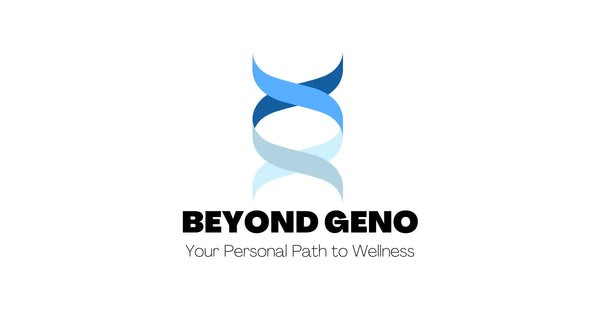
Comprehensive Guide about Direct-to-Consumer Genetic Testing Services for You
Share
Comprehensive Direct-to-Consumer Genetic Testing Services for You
In today's rapidly evolving world of science and health, genetic testing services have emerged as invaluable tools for individuals seeking to understand their own health and well-being. Comprehensive direct-to-consumer genetic testing can provide insights into genetic conditions, predispositions to certain diseases, and even personal traits. This article explores the multifaceted benefits of genetic testing, highlighting how it can empower individuals to make informed decisions about their health.
What is a Genetic Test?
A genetic test is a medical test that examines your DNA, the chemical database that carries instructions for your body’s growth, development, and function. It can identify changes in chromosomes, genes, or proteins and is used to determine the presence of a genetic disorder, assess the risk of developing a health condition, or guide treatment decisions.
What are the Different Types of Genetic Testing?
There are several types of genetic testing, including diagnostic testing, which confirms or rules out a specific genetic condition; predictive and presymptomatic testing, which determines whether an individual is at risk for a genetic disorder; carrier testing, which identifies individuals who carry a copy of a mutated gene for a certain genetic condition; and prenatal testing, which assesses the fetus for genetic changes. Whole genome sequencing and exome sequencing are comprehensive methods that analyze all of an individual's genes.
How Can Genetic Testing Services Benefit Individuals?
The benefits of genetic testing include providing valuable information for making informed health decisions, identifying the risk of inherited conditions, guiding treatment plans, and offering insights into potential health conditions that may arise in the future. It can also help families understand the genetic material they may pass on to their children.
What Does Genetic Counselling Involve?
Genetic counselling is a process that involves discussing the implications of genetic testing with a trained professional, known as a genetic counsellor. This process helps individuals and families understand their risks of genetic disorders, interpret test results, and make informed choices about testing and management options. A genetic counsellor can help you understand the impact of genetic changes on your health and that of your family.
What is the Difference Between Clinical Genetic Testing and Direct-to-Consumer Genetic Testing?
Clinical genetic testing is performed in a medical setting and is often ordered by a healthcare provider to diagnose or assess a specific genetic condition. In contrast, direct-to-consumer genetic testing allows individuals to purchase tests without involving.
Benefits of Genetic Testing
The benefits of genetic testing extend far beyond mere curiosity. By undergoing a genetic test, individuals can gain crucial insights into their genetic material, identifying specific genetic mutations that may affect their health conditions and help you understand potential risks. For instance, clinical genetic testing can reveal genetic changes associated with various types of cancer, facilitating proactive disease prevention strategies. Additionally, understanding one’s genome can help tailor lifestyle choices and medical interventions based on genetic predispositions, ultimately leading to improved health outcomes and a greater quality of life.
Genetic Testing - Cancer Risk Factors
Genetic testing can help identify mutations associated with various cancers, enabling individuals to understand their risk levels. For instance, mutations in the BRCA1 and BRCA2 genes significantly increase the risk of specific genetic disorders like breast and ovarian cancers. Individuals with a family history of these cancers may benefit from a type of genetic testing to determine if they carry these mutations. The results of a genetic test may guide preventive measures, such as enhanced screening protocols or prophylactic surgeries, based on the specific genetic diagnosis. Genetic counselling from a qualified genetic counselor can help interpret test results and discuss implications for family members, enhancing overall awareness and proactive health management.
Optimizing Your Fitness and Nutrition
Genetic testing can provide insights into how your body metabolizes certain nutrients and responds to physical activity. For example, variations in genes related to vitamin D metabolism can inform dietary choices and supplementation. Additionally, specific genetic predispositions may affect muscle composition, endurance, and recovery times, allowing individuals to tailor their fitness regimens accordingly with the help of a geneticist or genetic counselor. By understanding these genetic factors, individuals can optimize their nutrition and exercise plans for better health outcomes through direct-to-consumer genetic testing services that analyze critical genetic data.
Mental Health and Cognitive Function
Genetic testing can reveal susceptibilities to mental health conditions such as depression, anxiety, and bipolar disorder. Specific genetic markers have been linked to these conditions, providing individuals with valuable information regarding their mental health risks. Furthermore, genetic variations can influence cognitive functions, including memory and learning capabilities. This information can be used to develop personalized treatment plans or preventive strategies in collaboration with mental health professionals, ensuring that individuals receive the support they need based on their unique genetic profiles.
Proactive Disease Prevention
Genetic testing allows for early identification of genetic disorders, facilitating proactive health management and the prevention of medical conditions. By understanding genetic risks, individuals can engage in preventive measures, such as lifestyle modifications or regular screenings, guided by a geneticist or genetic counselor. For instance, those identified as carriers of certain genetic mutations can implement lifestyle changes to mitigate their risk for developing associated diseases. Additionally, genetic testing may inform family planning decisions by identifying potential hereditary conditions that could affect offspring, ultimately promoting a healthier future generation.
Personal Traits
Genetic testing can also provide insights into personal traits, such as eye color, hair color, and even predispositions to certain behaviors, helping you understand how these traits may be influenced by genetics. These traits are influenced by genetic variations that can be identified through testing, offering insights into how genetics can cause disease. Understanding these traits can enhance self-awareness and personal development. Moreover, such information can foster discussions about genetic diversity and the role of genetics in shaping individual identities. Through direct-to-consumer genetic testing, individuals can explore the fascinating interplay between their genetics and personal characteristics, enriching their understanding of themselves.
Understanding Your Ancestry
Genetic testing has become a popular way to explore ancestry and heritage, helping individuals understand their genetic connections and ethnic backgrounds. The results can reveal where ancestors lived, migration patterns, and unknown family ties, deepening one's understanding of cultural identity. Ancestry testing also offers insights into historical contexts, socio-political environments, and genetic predispositions to certain health conditions. Different types of genetic tests, such as autosomal DNA, mitochondrial DNA, and Y-DNA testing, can help construct a more accurate family tree and encourage individuals to celebrate their cultural heritage. Overall, genetic testing provides a unique lens through which individuals can view their place in human history, fostering a sense of belonging, cultural appreciation, and personal fulfillment.
Conclusion
Improving Quality of Life
Genetic testing can significantly improve quality of life by providing information about health and ancestry. With this knowledge, individuals can make informed decisions about their healthcare, lifestyle, and family planning, and take proactive measures to prevent or mitigate health conditions. Advances in genetic testing, such as whole genome sequencing, are helping to identify genetic conditions and risk factors, allowing individuals to tailor their health strategies. Genetic testing also offers personal empowerment and enhanced well-being and can lead to increased awareness of genetic diversity and a greater appreciation for individual identities. Overall, genetic testing has the potential to transform lives and improve quality of life for individuals and their families.

